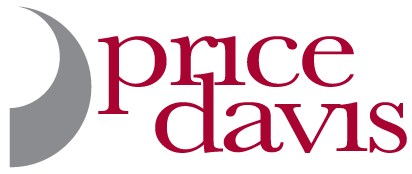As I’m sure you’re well aware, Inheritance Tax is a tax levied on an individual’s estate – their property, money, and possessions – after their death.
In recent years, this tax has been more and more frequently labelled a ‘tax on the dead’ and has been a cause of controversy by critics of the tax. This area of tax can be very specialised, and we’ll hold our hands up and say this is not us, however, there are some very simple and very easy ways you can reduce the value of your estate before your death, or through your will, to reduce your inheritance tax bill when you pass away.
Leave Everything to your Spouse
The first £325,000 of everyone’s estate is exempt from inheritance tax. If you’re married or in a civil partnership, property and assets can also pass between you both without incurring any additional liability. When drawing up your will, you should ensure that any money you have is left to your spouse to also reduce the liability further.
Any property you own can also be left to your spouse free of any inheritance tax liability under the provision that your spouse is a domicile resident. If your spouse is a non-domicile resident however, it could be subject to a liability.
Sign over your Pension to Relatives
The majority of UK pensions are outside the scope of IHT and is not a part of your taxable estate. However, any money taken out of a pension will become part of your estate and will be liable for Inheritance Tax.
When planning your estate, it might be smart to pay some money into a pension pot as this can often be a more tax efficient way to leave money to a loved one. Often, if you die before the age of 75 this pension can be passed to your relatives completely tax free. If you die after the age of 75 the pension pot will be taxable at the beneficiary’s highest rate of income tax.
However, these rules will depend on the type of pension you have and is not a universal rule. It is always important to consult a financial advisor before making any significant changes to your pension scheme.
Make use of Tax Free Gifts
Throughout each tax year, you are able to make tax free payments to your family totalling up to £3,000. This balance can also be carried over for one additional tax year meaning that you may be able to make gifts of £6,000 in a tax year.
You are also able to make annual tax free gifts of up to £250 per person to anyone you know. For example, if you are a grandparent to 6 grandchildren, you could give each grandchild a tax free gift of up to £250 on their birthday each before the gift becomes part of your taxable estate.
Donate to Charity
Donations to registered charities are all treated as inheritance tax free. Any donation, of any size, to any registered charitable organisation is 100% tax exempt and can be a good way of reducing the value of your estate in order to decrease the overall level of inheritance tax your beneficiaries would be required to pay on the remaining estate.
Another benefit, other than the obvious, to donating a portion of your estate to charity in your will would be that it can actually reduce the percentage of inheritance tax your beneficiaries will be liable to pay on the remainder of your estate. If you donate 10% of your estate to charity, the IHT rate on the remainder of your estate will be reduced from 40% to 36%.
This may not seem life changing but could lead to a substantial reduction to the overall liability suffered by your beneficiaries of your estate.
Use trust structure
Under some trust structures, namely those that are set up with the intention of leaving money for the benefit of others can work outside the remit of the inheritance tax boundaries.
In the UK, the way in which the vast majority of trusts work is ownership of property, money, and other assets are legally transferred to the trust rather than the individual that previously owned them. Trustees are appointed to oversee the integrity of these assets until the specified conditions of the trust are met and the beneficiaries of the trust are able to legally take ownership of the assets.
As the nature of the trust structure dictates that assets are owned by the trust until the beneficiary has met the conditions outlined in the trust’s inception – such as reaching a certain age – and not the individual that acquired them originally, these assets are no longer counted within the estate of the deceased individual.
Final Thoughts
When it comes to reducing your estates value, and inheritance tax planning, a basic rule of thumb would be to be as generous as you can. Offloading as many of your assets either prior to your death, or within your will, is a tax efficient way to benefit your loved ones and charitable causes while also reducing the value of your taxable estate.
Of course, ensuring you’re dispensing of these assets in a legal manor is tricky and you should always consult a financial or legal adviser with expertise in inheritance tax or lifetime planning.
At Price Davis, we can give some basic advice on methods of making your estate more tax efficient to help reduce the overall inheritance tax liability suffered by your loved ones. In more complex estates you may be best off speaking to a specialist but we are certainly happy to field an initial conversation. Contact us by calling 01452 812491, or send an email to info@pricedavis.co.uk.

